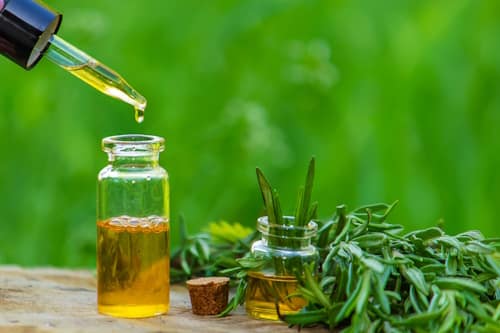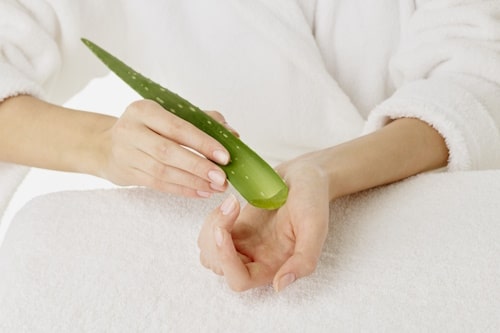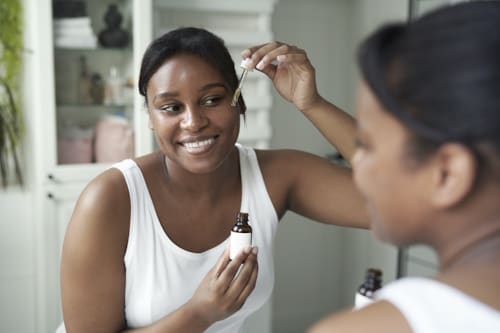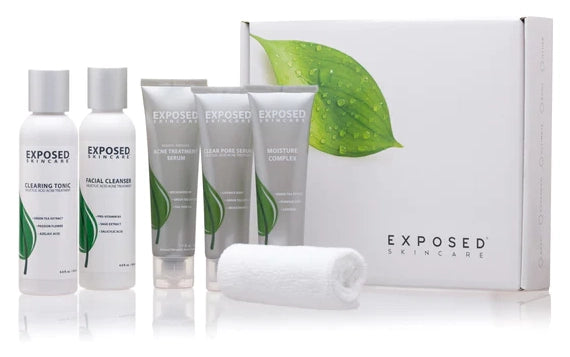Nature offers a bounty of solutions that can aid in achieving clear and healthy skin. However, for acne, individuals often turn to harsh chemical treatments that may offer quick fixes but come with side effects.
The best herbs for acne, known for their anti-inflammatory and antimicrobial properties, provide a gentle yet effective alternative. This comprehensive guide dives into the best herbal remedies that help treat acne and nourish and balance the skin for long-term health.
Also read: How to choose the best acne treatment
Biggest Take-Aways
- Herbal remedies, including various Eastern and Western herbs, can significantly benefit those suffering from acne by reducing inflammation and fighting bacteria.
- Using natural ingredients in skincare is a gentle yet effective approach to managing various skin conditions, especially for sensitive skin.
- Incorporating ingredients like benzoyl peroxide or salicylic acid in treatment plans can enhance the effectiveness of herbal remedies in combating acne.
- Exposed Skin Care stands out by offering a balanced approach that merges scientifically proven ingredients with natural extracts to address acne comprehensively and promote healthy skin.

The Best Herbs for Acne: Nature's Answer to Clear Skin
Before diving into the specific herbs, it's essential to understand the skin's physiology and how herbal remedies can support its well-being. Acne occurs when pores become clogged with excess sebum, dead skin cells, and acne-causing bacteria,
This leads to inflammation and the formation of pimples, blackheads, and whiteheads. By integrating the right herbs into your skincare routine, you can target these root causes naturally.
Herb #1: Witch Hazel - The Pore-Tightening Astringent
Witch hazel is renowned for its ability to tone and tighten pores thanks to its astringent qualities. This herb also helps in reducing inflammation and the appearance of acne breakouts by soothing irritated skin and reducing sebum production.
Incorporating Witch Hazel into Your Routine
- Direct Application: Use a witch hazel toner after cleansing to tighten pores and prepare the skin for moisturizing.
- Spot Treatment: Apply with a cotton ball directly to the inflamed area to soothe the skin and reduce redness.
Herb #2: Tea Tree - The Antiseptic Warrior
Tea tree oil, with its remarkable antiseptic and anti-inflammatory properties, has long been a cornerstone in treating acne. Extracted from the leaves of the Melaleuca alternifolia tree, this potent oil targets acne by penetrating deeply into pores, disinfecting them, and warding off acne-causing bacteria.

Methods to Utilize Tea Tree for Acne
- Topical Application: Dilute tea tree oil with a carrier oil and apply it to blemishes with a cotton ball.
- Cleanser Addition: Add a few drops to your regular cleanser for an antibacterial boost.
- Homemade Masks: Incorporate it into clay masks for an enhanced pore-cleansing effect.
Herb #3: Neem - The Antibacterial Powerhouse
Neem, an herb with a storied history in Ayurvedic medicine, is praised for its antibacterial and anti-inflammatory properties, making it an effective remedy for acne. Neem oil and leaves treat various skin conditions, including severe acne.
Strategies for Utilizing Neem
- Neem Oil Application: Apply diluted neem oil to affected areas to combat bacteria and soothe inflammation.
- Neem Leaf Paste: Create a paste from crushed leaves and apply it as a facial mask for a deeper treatment.
Herb #4: Aloe Vera - The Soothing Hydrator
Aloe vera is a well-known herb that calms inflamed skin while also hydrating without clogging pores. The gel extracted from the aloe plant has anti-inflammatory properties that help treat and reduce acne lesions.

Using Aloe Vera Effectively
- Gel Application: Apply fresh aloe vera gel directly to the skin as a moisturizer or soothing gel on inflamed areas.
- Added to Lotions: Mix aloe vera gel with your daily lotion for additional hydration and healing benefits.
Herb #5: Chamomile - The Anti-Inflammatory Soother
Chamomile, known for its calming effects when ingested as a tea, also offers anti-inflammatory and antibacterial benefits for the skin. It's an excellent choice for sensitive skin that might react adversely to stronger topical acne treatments.
Chamomile Uses for Acne
- Chamomile Tea Toner: Use cooled chamomile tea as a gentle toner to alleviate skin redness and swelling.
- Chamomile Infused Oil: Apply oils infused with chamomile to soothe and heal the skin around acne breakouts.
Herb #6: Salicylic Acid-Rich Herbs - The Natural Exfoliants
Salicylic acid is a beta-hydroxy acid well-known for its ability to exfoliate the skin and clear clogged pores. While it is commonly found in commercial acne products, certain herbs naturally contain this compound, offering a more gentle approach to exfoliation and pore cleansing.
Herbs High in Salicylic Acid and Their Applications
- Willow Bark Extract: Use products containing willow bark extract, a natural source of salicylic acid, to gently exfoliate and reduce inflammation.
- Berry Extracts: Berries, particularly strawberries, contain natural salicylic acid. Use berry extracts in homemade masks for a gentle, exfoliating treatment.
Natural Routines Using the Best Herbs for Acne
Creating a natural skincare routine incorporating the best herbs for acne can significantly improve skin health. Each step, from cleansing to moisturizing, can include these powerful herbs, ensuring that every layer of your skincare works harmoniously to fight acne and promote clear, healthy skin.

Creating a Herbal Cleansing Regimen
- Start with a Tea Tree or Neem-Based Cleanser: A cleanser incorporating tea tree or neem can provide a potent yet gentle antibacterial cleanse.
- Exfoliate with Salicylic Acid-Rich Herbs: Incorporate a natural exfoliant with salicylic acid from willow bark or berry extracts once or twice a week to help keep pores clear.
- Apply a Witch Hazel Toner: After cleansing, a witch hazel toner can refine pores and prepare the skin for further treatment.
Layering Herbal Treatments and Moisturizers
- Spot Treatment with Concentrated Herbs: Use diluted essential oils like tea tree or neem oil to treat blemishes.
- Moisturize with Aloe Vera: Aloe vera is an ideal choice for hydration without exacerbating acne. It provides moisture without adding oil to the skin.
- Chamomile for Soothing Night-Time Care: Apply chamomile-infused products in the evening to calm the skin overnight.
Managing Acne With Exposed Skin Care
Managing acne effectively requires understanding the root cause of acne, which can range from hormonal imbalances to oily skin. Exposed Skin Care harnesses a fusion of scientific advancements and herbal remedies for acne, providing a targeted approach to skincare.
Here are some compelling benefits of Exposed Skin Care:
- Synergy of Science and Nature: Utilizing a blend of herbs and natural ingredients, Exposed Skin Care helps to address acne directly at the source.
- Dual Action Formulas: Products containing benzoyl peroxide work alongside salicylic acid to clear acne-prone skin, reducing the appearance of acne scars and preventing future breakouts.
- Control Sebum Production: Ideal for oily skin, the formulas help reduce your acne by managing sebum production and preventing the clogged pores that cause acne.
- Designed for All Skin Types: The skincare line caters to various skin types, ensuring everyone can find a good alternative to homemade acne treatments.
- Minimize Acne Scars: Regular use can help you get clear skin, keeping your skin healthy while diminishing existing blemishes and scars.
Exposed Skin Care is not just about treating acne; it's also about restoring confidence with clear, healthy skin.
Conclusion
In the quest to eliminate acne, we have explored the different gifts of nature that present themselves as viable solutions. Many herbs, from the Chinese herbs to the rejuvenating popular Ayurvedic ones, are key to addressing acne and nurturing the skin.
Dealing with acne-prone skin often feels like a relentless battle, but it becomes a manageable task with the right treatments for acne, which may include the ancient wisdom of herbs. Utilizing skincare products infused with these potent botanicals can lead to clearer and healthier skin.
Moreover, integrating the dual-action force of benzoyl peroxide or salicylic acid with the healing prowess of these herbs has shown promising results. These ingredients treat acne because they effectively clear skin issues, penetrating deep to soothe and heal.
Exposed Skin Care epitomizes this synergy, using natural ingredients in combination with scientifically proven substances like benzoyl peroxide or salicylic acid. The result is a comprehensive skincare solution that's adept at treating acne and maintaining the skin's overall health.
FAQs
Can herbs really treat acne?
Yes, many herbs have anti-inflammatory and antimicrobial properties that can help reduce acne breakouts and promote skin healing.
What are the best herbs for acne?
Some of the best herbs for acne include tea tree, witch hazel, neem, aloe vera, and certain Chinese herbs known for their skin-benefiting properties.
How do benzoyl peroxide and salicylic acid work against acne?
Benzoyl peroxide kills acne-causing bacteria and clears pores, while salicylic acid helps dissolve the debris that clogs pores and causes acne.
Are natural remedies for acne as effective as over-the-counter products?
Natural remedies can be effective and are a good alternative for those seeking treatments without harsh chemicals. Their efficacy varies from person to person.
What makes Exposed Skin Care different from other acne treatments?
Exposed Skin Care combines science and nature, using clinical-strength active ingredients and natural extracts to treat acne and improve skin health.


















